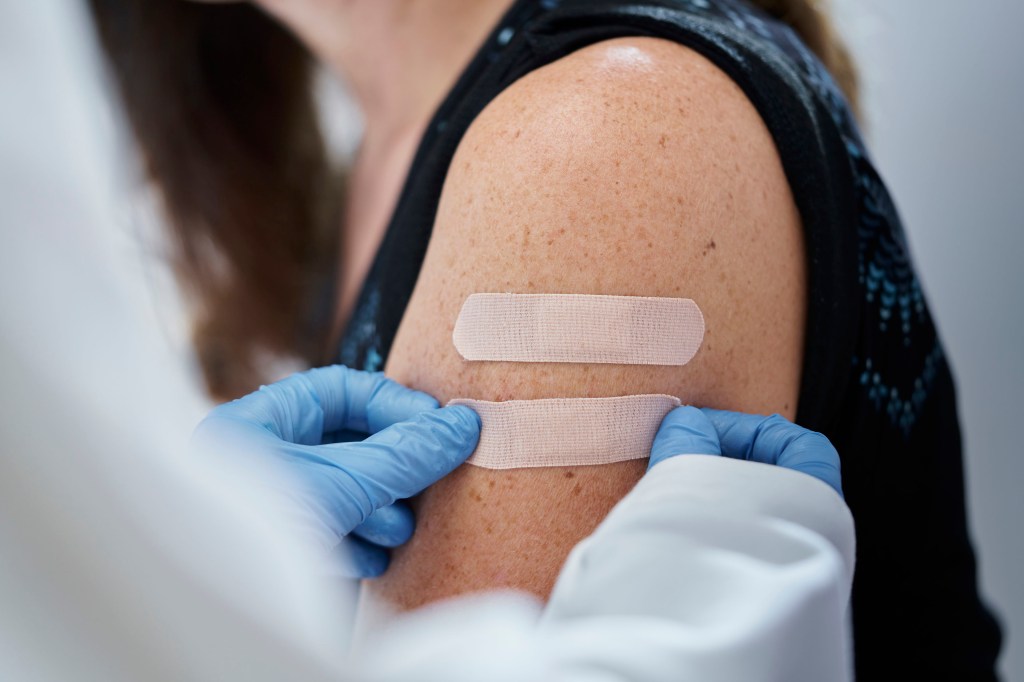Healthline News RSS Feed – Read More

- University of Colorado football coach Deion Sanders shared he was successfully treated for bladder cancer after having his bladder removed.
- ‘Coach Prime’ said the cancer was detected early after he underwent a routine CT scan to monitor his other health conditions.
- Experts say it’s particularly important for men over 50 to get screened for bladder cancer since the disease can be treated if caught in its early stages.
University of Colorado football coach Deion Sanders is getting the word out about bladder cancer screenings after his close call with the disease.
‘Coach Prime,’ 57, said that medical professionals detected bladder cancer after he underwent a routine CT scan earlier this year. In a recent press conference, the former two-sport star said the early diagnosis led to successful bladder surgery, and he is now “cured” of his cancer.
“Men — everybody — get checked out because if it wasn’t for me getting tested for something else, they wouldn’t have stumbled upon this,” said Sanders, who played professional football and baseball. “And make sure you go to get the right care because without wonderful people like this, I probably wouldn’t be sitting here today.”
Sanders went in for his CT scan this spring because of previous issues he had with blood clots and chronic vascular disease that led to the amputation of two of his toes last year.
The scan revealed there was a tumor in Sanders’ bladder. Surgeons removed the tumor and learned the cancer had invaded the bladder wall but had not yet reached the muscular layer beyond the wall.
Janet Kukreja, MD, a robotic surgery expert at the University of Colorado School of Medicine, said at the press conference that she recommended bladder removal because, without that surgery, there was a 50% chance the cancer would return.
“I am pleased to report that the results from the surgery are that he is cured from the cancer,” Kukreja said.
Sanders said he went public with his diagnosis and treatment to help save lives. “We are helping some folks today. There’s some folks right now calling their doctors, scheduling checkups,” he said.
Experts say Sanders is offering good advice.
“It is important to understand that the earlier bladder cancer is diagnosed, the less involved the treatment and increase in the rate of cure,” said Ramkishen Narayanan, MD, an urologist and urologic oncologist and the director of the Center for Urologic Health at The Roy and Patricia Disney Family Cancer Center at Providence Saint Joseph Medical Center Occupational in California.
Stages and risks of bladder cancer
The American Cancer Society (ACS) estimates there will be about 85,000 new cases of bladder cancer in the United States in 2025. About 65,000 of those cases will be males.
More than 90% of people diagnosed with bladder cancer are over the age of 55, with the average age of diagnosis being 73.
The ACS projects that about 17,000 people in the U.S. will die from bladder cancer this year. About 12,000 will be males.
Bladder cancer is the 10th leading cause of cancer death in the U.S. Bladder cancer death rates have decreased by about 1% per year since 2013.
The stages of bladder can vary. The five stages are:
- Stage 0: Cancer hasn’t spread beyond the bladder lining
- Stage 1: Cancer has spread past the lining of the bladder
- Stage 2: Cancer has spread to the layer of the muscle in the bladder
- Stage 3: Cancer has spread to tissues surrounding the bladder
- Stage 4: Cancer has spread to neighboring areas of the bladder
The 5-year survival rates for bladder cancer are vastly different, depending on the stage. According to the National Cancer Institute, there is a 97% survival rate for cancer that hasn’t spread past the lining of the bladder but only an 8% survival rate for cancer that has spread to other parts of the body.
Jack Jacoub, MD, a medical oncologist and the medical director of MemorialCare Cancer Institute at Orange Coast and Saddleback Medical Centers in California, told Healthline there is a big difference between low risk bladder cancer in its early stages and the high risk version in the latter stages.
He said cancer spreading to the muscle layer and surrounding tissues is “the critical point in the development of bladder cancer.”
Jacoub said it’s not entirely clear how bladder cancer develops. He noted that, like the colon, the bladder stores waste products, and the chemicals from those products can leak into surrounding layers and tissues.
“The bladder at the end of the day is a reservoir,” he explained.
Symptoms and treatment for bladder cancer
Bladder cancer occurs when abnormal bladder cells divide and grow out of control. These cells can form a tumor and eventually spread to surrounding muscles and organs.
The number one risk factor is smoking. About 50% of bladder cancer cases are linked to smoking.
The ACS reports that people who smoke may be three times more likely to develop bladder cancer than people who don’t smoke.
“Smoking hands down is the biggest risk factor,” Jacoub said.
Sanders has never smoked, so it’s clear there are still other risk factors. They include exposure to certain chemicals, a family history of the disease, and chronic bladder infections.
“Cigarette smoking is the dominant risk factor — carcinogens are inhaled, filtered by [the] kidneys into urine, and exposed to the bladder,” noted Narayanan.
“Exposures — aromatic amines and dyes found in industries such as metal, leather, painting and hair-coloring, plastics manufacturing, and firefighting — significantly elevate risk,” he told Healthline.
The most common symptoms of bladder cancer are:
Bladder cancer can also cause pain in the abdomen and lower back, as well as fatigue, loss of appetite, and swollen feet.
The disease is usually initially detected from lab tests, such as a urinalysis. Doctors may then order tests such as a cystoscopy, a biopsy, or a CT scan for further diagnosis.
The treatment for bladder cancer depends on the stage at which it is discovered.
In the early stages, doctors may elect to simply remove the tumor and/or order chemotherapy or immunotherapy for the patient.
In later stages, doctors may decide to remove part or all of the bladder as well as order chemotherapy, radiation, and immunotherapy.
“Bladder cancer is often treatable, especially when found early,” Eugene Shkolyar, MD, a clinical associate professor of urology at Stanford University in California, told Healthline. “The most important determinant in treatment is what type of bladder cancer is found.”
Deion Sanders’ bladder removed during cancer treatment
In Sanders’ case, doctors elected to take out his entire bladder.
In that type of surgery, doctors first remove the bladder. Next, they cut out about a foot and a half of the end section of the small intestine known as the ileum.
Surgeons then slice that section of the ileum so it lies flat. Then they fold the section in half and attach the back end to the front end.
The surgeon then secures this neobladder to the kidneys and urethra.
The neobladder doesn’t function like the original bladder because it doesn’t send signals to the brain to let a person know when to urinate.
People like Sanders who have neobladders undergo training to learn to control their urination functions during the day. However, there is usually leakage when the person is asleep.
Shkolyar said the recovery after bladder removal can be a long road.
“After bladder removal (cystectomy) recovery can take several months,” he said. “This is a major operation that involved not only removing the bladder but also re-routing the urinary tract using the intestines. Patients first focus on regaining bowel function and learning how to manage their urinary system. Afterward, the focus is on return to good nutrition, physical strength, and function. This can take up to three months for some.”
At a recent press conference, Sanders acknowledged he now “depends on Depends.” He noted there will probably be a portable toilet on the field when he coaches University of Colorado football games.
Sanders said it’s important that people talk about these issues.
“I know there’s a lot of people out there going through what I’m going through. And dealing with what I’m dealing with,” he said. “And let’s stop being ashamed of it.”
Shkolyar said follow-up appointments are crucial for anyone who has been treated for bladder cancer.
“No matter the treatment, ongoing follow-up is important to watch for recurrence and manage any side effects,” he said. “Support from multidisciplinary healthcare teams with expertise in bladder cancer is critical.”
Sandip Prasad, MD, the surgical director of genitourinary oncology and vice chair of urology at Morristown Medical Center in New Jersey, a part of the Atlantic Health System, agrees that consistent check-ins with medical professionals is crucial for people who have had bladder cancer.
“For all bladder cancer patients, there will be a lifetime of follow-up to ensure the disease does not recur,” Prasad told Healthline. “For this reason, your relationship with your urologist is critically important to maintain good communication, preserve quality of life, and achieve a long and healthy life as a bladder cancer survivor.”





